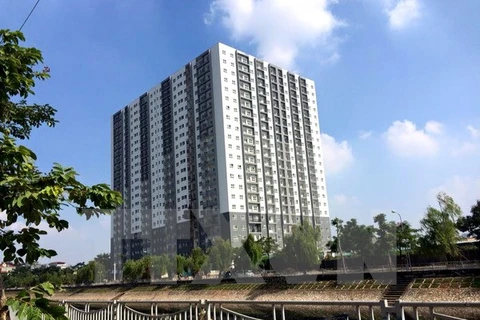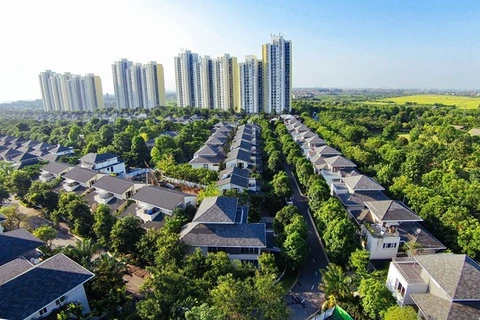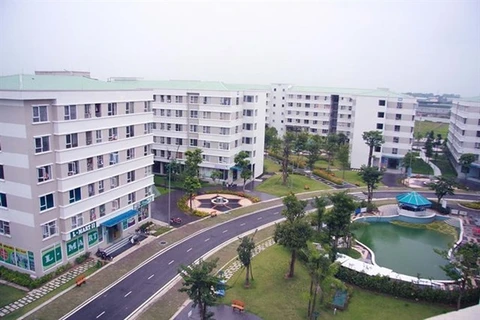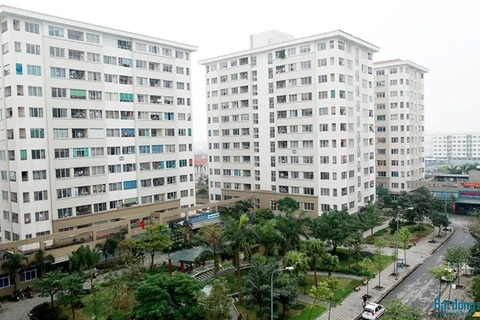Hanoi (VNA) – Nguyen Thi Phuong, who has worked at the Thang Long Industrial Park in Hanoi’s outskirts district of Dong Anh for years, said her family of three would enjoy a stable life if not for housing.
Phuong is one of many other workers at industrial and export processing zones across the country, who are grappling to find housing with affordable rent and access to public schools. Most of them had to rent rooms in residential areas and send their children to private kindergartens.
The Construction Ministry reported that only 20 percent of workers nationwide have accessed housing projects, meeting only 40 percent of the target set in the national housing development strategy by 2020 with a vision towards 2030.
Ha Quang Hung, deputy head of the Housing and Real Estate Market Management Department under the Construction Ministry, said many rental houses do not meet requirements of environmental hygiene and essential social and technical infrastructure such as kindergartens, schools, medical centres and entertainment areas.
To solve the problem, the Prime Minister on January 25, 2017 issued Directive No. 03/CT-TTg on promoting social housing development, particularly housing for workers.
Statistics of 46 out of 63 centrally-run cities and provinces show that as of early 2018, about 1.2 million workers at industrial parks needed accommodations. The number is projected to amount to around 3 million in 2020.
Localities reported that 73 housing projects for workers are being carried out with about 88,400 apartments. However, many of them have been suspended or have slow progress due to a lack of capital.
According to the Housing and Real Estate Market Management Department, localities have yet to pay due attention to social housing development, particularly social housing projects and houses for workers.
Hoang Vu Linh Chi from the Institute of Sociology underlined the need for regulations that require newly-formed industrial parks to zone land for workers’ houses before calling for investors.
She also pointed out bottlenecks hindering social housing projects such as cumbersome administrative procedures, and prolonged land clearance compensation and project approval.
In this regard, Hung suggested policies designed specifically for social housing projects in terms of land lease fee and tax, and access to long-term housing loans with low interest rates for workers and labourers in need of housing.-VNA
VNA

























